Does Coconut Contain FODMAPs?
Yes, coconut can be low FODMAP.
There are plenty of ways for you to enjoy coconut while following the low FODMAP diet. Amongst the various coconut products, from dried to fresh, coconut milk (canned and UHT), cream and water, coconut sugar and flour, oil, yogurt, and more, the answer depends on the product.
We break it down for you, one coconut product at a time. Some of the answers are clear cut; others, not-so-much. As always we strive to bring you the most up-to-date FODMAP science and information so that you can thrive on the low FODMAP diet.
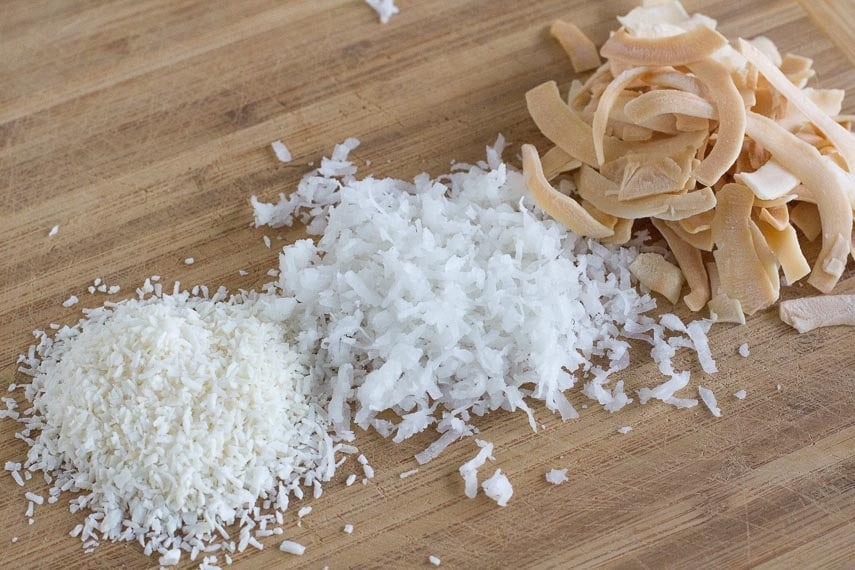
- Does Coconut Contain FODMAPs?
- Low FODMAP Coconut Products
- Coconut Cream
- Canned Coconut Milk, regular fat
- UHT Long Life Coconut Milk
- Canned Coconut Milk, Light
- Coconut Water: "Commercial" and Mature Fresh
- Coconut Oil
- Coconut Butter
- Fresh Coconut
- Dried Coconut
- bare brand Toasted Coconut Chips
- Coconut Sugar
- Coconut Flour
- Sweetened Coconut Condensed Milk: Full Fat
- Coconut Treacle
- Powdered Coconut Milk
- Vegan Coconut Oil Based Cheese, Cheddar
- Vegan Coconut Oil Based Cream Cheese
- Coconut Aminos
- Coconut Yogurt
- Un-Tested Coconut Products
- Certified Low FODMAP Coconut Products
- Coconut Recipes
Low FODMAP Coconut Products
Let’s get to the good news first. Here are the coconut products that you can incorporate into your diet, even during the Elimination phase. These are lab tested amounts by Monash University and FODMAP Friendly. Some of the entries show amounts from multiple testing batches.
Coconut Cream
This product has been tested by Monash University and is recommended at amounts of ¼ cup (60 g). No information has been provided for Moderate or High FODMAP serving sizes, but since this is a high fat product, it is lower in carbohydrates by definition. The max serve size suggested in 500 g.
FODMAP Friendly has low FODMAP serving sizes set at ⅓ cup (195 g), with a max serving size of 195 g.
Canned Coconut Milk, regular fat
Monash University tested products without inulin and their low FODMAP amount was ⅓ cup (80 g), updated to suggest ¼ cup (60 g). In this case the margin is small as it becomes Moderate FODMAP at ½ cup (120 g) for sorbitol. In an email with Monash, they clarified that they tested full fat versions (center, below), which they call “regular”.
Monash has also tested canned full-fat canned coconut that contains inulin, and there is no low FODMAP serving size.
FODMAP Friendly sets the low FODMAP serving size of canned coconut milk at ¼ cup or 62.5 ml (used to be ⅓ cup), but notes a max low FODMAP serving size of 1 ¼ cups (312.5 ml).
UHT Long Life Coconut Milk
unsweetened: This is coconut milk that comes in shelf-stable, un-refrigerated cardboard containers. Monash initially gave this a Green Light at ½ cup (125 ml/120 g). That has been increased to ¾ cup, or 180g. FODMAP Friendly says 1 cup (250 ml), with a max low FODMAP serving size of 2 cups (500 ml).
Canned Coconut Milk, Light
“Lite” or “Light” versions exist (as seen in left of image, below); they just have a higher water content.
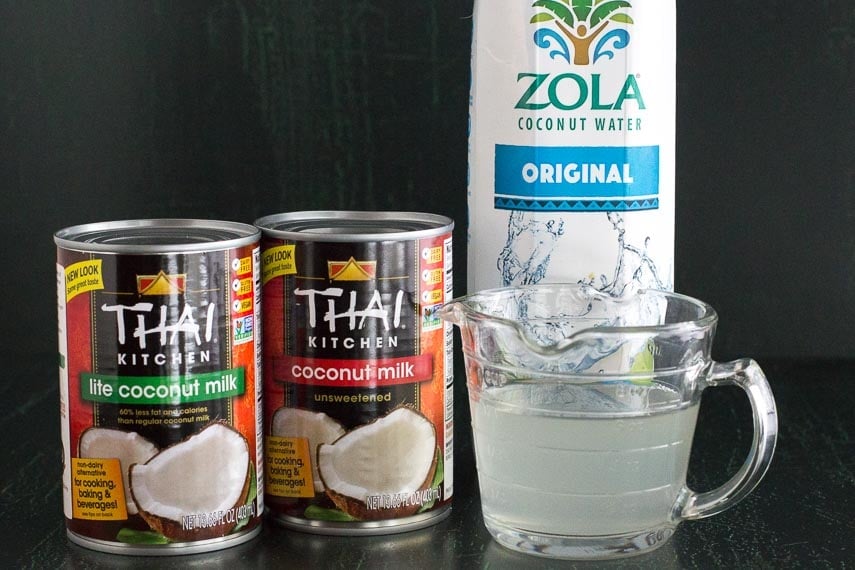
Monash University low FODMAP servings of light canned coconut milk are ¼ cup (60 g). Max serve is 500 g, but that is just because it is the most they tested.
Coconut Water: “Commercial” and Mature Fresh
Coconut water is the clear liquid from the center of fresh coconuts (seen above, right). Monash has tested both “commercial”, which is packaged, as well as “mature, fresh.”
Monash University low FODMAP amount of mature fresh coconut water is 121 ml, becoming Moderate at 177 ml, and High FODMAP at 250 ml. It contains both sorbitol and fructans at larger servings. The commercial coconut water shows low FODMAP servings of 100 ml, which is slightly less than ½ cup, becoming Moderate at 150 ml and High at 250 ml, again showing both sorbitol and fructans at larger servings.
Coconut Oil

Both refined and unrefined coconut oils are “no” FODMAP. They are pure fats and therefore we don’t have to worry about FODMAP content. Refined will be less “coconutty” in flavor. Both are high in saturated fat and should be consumed in moderation. Coconut oil is solid at cool room temperature, and liquid at warm temperatures.
There is a lot of nutritional misinformation about coconut oil; make sure you are reading evidence-based studies. Coconut oil contains more saturated fat than butter and is linked to an increased risk of heart disease, stroke, and weight gain.
Please note that the 1 tablespoon (18 -20 ml) serving size suggestion by FODMAP Friendly and Monash is based on healthy eating guidelines, not FODMAP content. Fat can be an IBS trigger. Eat to your tolerances.
Coconut Butter

This is not the same as coconut oil. Coconut butter is actually coconut flesh that has been ground down and processed into a creamy, spreadable paste, like a “butter”. It is essentially a very concentrated form of coconut flesh/meat. FODMAP Friendly has lab tested coconut butter and their low FODMAP serving size is 33.7 g, with a max low FODMAP serving of 87.62 g.
Fresh Coconut
Fresh coconut refers to the fresh, moist flesh harvested from a freshly cracked-open coconut. You can also sometimes find fresh coconut in freezer sections of supermarkets. Note that this fruit is given a Yellow Light on the Monash University app, but if you click through you will learn that it was Green Light and low FODMAP in ½ cup (48 g) servings, now updated to ¾ cup (81 g). Larger amounts contain the polyol sorbitol, becoming Moderate for FODMAPs quickly, at 1 cup (96 g).
FODMAP Friendly stated low FODMAP serving size of ½ cup (48 g), with a max low FODMAP serving size of 121 g. This entry is no longer on the app.
Dried Coconut

Dried coconut comes in many forms. Use weights for accuracy. The one tested by Monash and listed on their app is for unsweetened shredded dried coconut. Monash used to give this entry a Moderate yellow light with low FODMAP servings of ¼ cup (18 g) servings. Now the listing is ½ cup (30 g), becoming Moderate at 35 g and High FODMAP at 51 g. Their testing show the polyol sorbitol.
FODMAP Friendly lab tested dried, shredded coconut and their tests suggest ¼ cup (25 g) servings, showing fructose and sorbitol content, but a max low FODMAP serving can be enjoyed up to 1 ¼ cup (125 g).
You can see in the images above and below that dried coconut comes in many forms. Left to right below: Unsweetened grated (sometimes called desiccated), in the middle is long shred coconut, sometimes called “angel flake”. This can come sweetened or unsweetened. On the right are large coconut flakes, sometimes called chips; these happen to be toasted. These also come both sweetened and unsweetened.
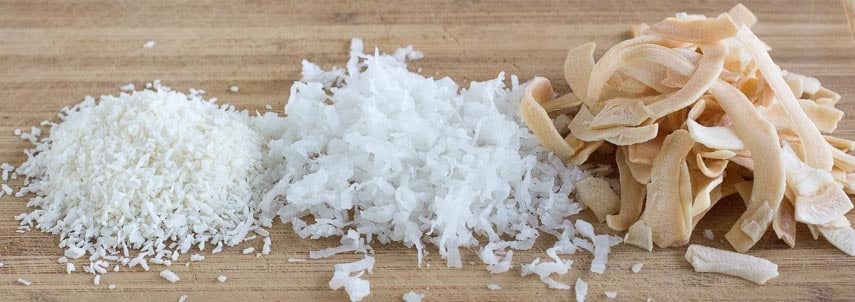
In conversations with Monash it appears they tested the finely grated kind, but there is huge variations in texture even among brands. Use your common sense with other textures as they measure differently. And remember they have only tested unsweetened.
bare brand Toasted Coconut Chips
Lab tested by Monash. 180 g, or about ¾ cup, is a low FODMAP serving size.
Coconut Sugar

Granulated coconut sugar is made from the coconut palm tree and is not to be confused with palm sugar, which is made from the date palm. Monash gives this a Green Light low FODMAP serving at 1 teaspoon (4 g). Fructans and/or fructose are present in larger quantities.
This is one of those food ingredients where lab tests have shown wildly different results. Initially FODMAP Friendly had a low FODMAP max serving size as 1.02 cups (204 g). Now their suggested low FODMAP serving is 1 teaspoon (4 g) with a max serve of 24 g.
Coconut Flour

This is made by grinding up the leftover mass after coconut oil and/or milk has been produced. It is very high in fiber and does not work as a 1 to 1 replacement for all-purpose flour in baking. The 2/3 cup (100 g) serving tested by Monash showed that it was high in Oligos, Fructose and Polyols. FODMAP Friendly has tested coconut flour as well. In their initial lab tests, their 3 tablespoon (20 g) amounts were determined to be high FODMAP. In subsequent lab tests they now show a low FODMAP serving of ¼ cup (20 g).
Sweetened Coconut Condensed Milk: Full Fat
Monash University has lab tested Sweetened Coconut Condensed Milk and it is low FODMAP in 2 tablespoon (40 g) servings, becoming Moderate at 4 tablespoons (85 g) and High at ½ cup (107 g), at which point it shows fructans.
Coconut Treacle
This is a liquid sweetener that has been given the low FODMAP Green Light by Monash in small servings. They recommend it at ½ tablespoon, however, remember that these are Australian tablespoons. Go by their weight, which is 14 g. In larger amounts the fructan level makes this high FODMAP.
Powdered Coconut Milk
This is a product that you might not come across unless you are in an Asian food store or shopping in a specialty food store. (King Arthur sells it for baking, for instance). It is a shelf stable product that allows you to whip up coconut milk for cooking and baking at a moment’s notice.
Ingredients will typically be coconut milk, and/or maltodextrin and/or modified food starch and/or possibly some sort of sweetener. Monash has lab tested it and 1 tablespoon (20 g) is low FODMAP. No other information is provided.
Vegan Coconut Oil Based Cheese, Cheddar
Monash University state that 2 slices (what the heck is a “slice”), or 40 g is low FODMAP, however, we have no idea what product they lab tested and not all vegan, coconut-oil based cheeses are the same; they very well could contain high FODMAP ingredients. Read labels.
Vegan Coconut Oil Based Cream Cheese
Same comments as above. Monash says 30 g is low FODMAP, however, we have no idea what product they lab tested and not all vegan, coconut-oil based cream cheeses are the same; they very well could contain high FODMAP ingredients. The unknown product they tested doesn’t become Moderate until 244 g. Read labels.
Coconut Aminos

This liquid seasoning is often used as a soy sauce substitute. (Soy sauce is low FODMAP, and has a much larger low FODMAP serving size. There is not need to substitute for it, from a FODMAP perspective). Coconut aminos do not taste like soy sauce; consider them their own condiment.)
Monash University has lab tested coconut aminos, with and without garlic, and their low FODMAP serving size is identical: 1 teaspoon (5 g). The one without garlic has larger Moderate and High FODMAP serving sizes. Please use your app for specifics, as always.
FODMAP Friendly lab tested low FODMAP serving is 1 teaspoon (5 g), with a max serve of 3 teaspoons (15 g). The tested the Niulife brand, so it is certified.
Coconut Yogurt
Not all coconut yogurt contains the same ingredients, and indeed, we have seen some with high FODMAP ingredients. You have to read labels. Both Monash University and FODMAP Friendly have lab tested coconut yogurt, but neither has offered specifics of brands tested, so these serving size amounts should be considered quite general.
Monash University lab tested low FODMAP serving size is “1 tub” (not helpful) so please go by weight of 125 g. FODMAP Friendly lab testing suggests a low FODMAP serving size of ⅓ cup (85 g), with a max serve of 1 ⅓ cups (368.33 g).
You must read individual labels and assess for FODMAPs. Even within the same brand, one flavor could be okay such as vanilla, but another flavor such as mango might not be.
Un-Tested Coconut Products
There are several coconut products that have not been lab tested. Here is some information:
Canned Cream of Coconut
This is more sugar than coconut and is hardly ever used in cooking like real canned coconut milk or coconut cream. It is, however used in desserts and beverage creation. Cream of coconut is a sugary, syrupy concoction commonly used to create pina coladas. Cream of coconut might be made with high fructose corn syrup or other potentially high FODMAP ingredients (we do not know the FODMAP content of) such as sorbitan monostearate, which is a sorbitol (polyol) derivative. But you can find products with low FODMAP ingredients, such as Simply Squeeze Coco Real. Label reading is a must.
Refrigerated Coconut Milk
U.S. supermarket refrigerator shelves are jam-packed with coconut milk. It comes unsweetened, sweetened, with vanilla or without. The ingredient lists are not very often low FODMAP.
They start with coconut milk, there are many sweetened with plain cane sugar and the added vitamins and gums would not be high FODMAP red flags. These products are not tested, but they are very popular and we suggest that you do a test for yourself.
Coconut Ice Cream

There are many coconut ice creams on the market so it is impossible to assess them as a group. Certainly some have cleaner labels than others and you should definitely steer clear of any with inulin, high fructose corn syrup, agave, honey or flavors like cherry or mango, all of which are higher FODMAP foods. It is possible to find some brands with low FODMAP labels, and you could try small amounts. We have many suggestions in our low FODMAP ice cream article.
Certified Low FODMAP Coconut Products
Both Monash University and FODMAP Friendly have lab tested and certified many prepared coconut products. Always check the “Certified” area of the two apps for new products as they are updating often. Here are some to check out:
Monash University Certified Products
- Fodbods Lemon Coconut Protein Bar
- Fodbods Raspberry Coconut Protein Bar
- So Good Sanitarium Unsweetened Almond Coconut Milk
- Carman’sDark Chocolate, Coconut & Macadamia Roasted Nut Bar
- Field Doctor Prepared Delivery Service Keralan Vegetable & Coconut Curry
- Modify Health Delivery Service Coconut Curry Tofu with Bok Choy (based on our recipe!)
- Sanitarium Coconut & Cinnamon Gluten-Free Weet-Bix Breakfast Cereal
- We Feed You Prepared Delivery Service Thai Green Coconut Curry with Veggies and Brown Rice
FODMAP Friendly Certified Products
- Chocolife Balance Coconut Milk Chocolate
- Chococlife Superfood Chocolate Cupuacu and Coconut
- GoMacro Coconut + Almond Butter + Chocolate Chips Bar
- GoMacro Granola + Coconut Bar
- Double Crunch Coconut Milk Vegan Cacao
- Epicured Lemon Coconut Energy Bites
- Epicured Coconut Macaroon
- Fodilicious Coconut & Chia Granola
- Fodilicious Coconut Crunch Cookie Buttons
- FODMAPPED for You Coconut Bites, Dark Chocolate & Cranberry
- FODMAPPED for You Coconut Bites, Raspberry & Vanilla Bean
- FODMAPPED for You Coconut Bites, White Chocolate & Berry
- Food for Health Cacao & Coconut Clusters
- Niulife Naked Coconut Amino Sauce
- The Good Chocolate 58% Double Crunch Coconut Vegan Milk
- The Good Chocolate Coconut Turmeric Dark Chocolate
Coconut Recipes
If you want to see coconut in action, check out our many sweet and savory recipes:
- Toasted Almond Coconut Fudge Brownies
- Poppy Seed Carrot Banana Bread
- The Best Popcorn Ever!
- Glorious Morning Muffins
- Passion for Coconut Beverage
- Coconut Chocolate Chunk Cookie Dough Blondies
- 2-Ingredient Coconut Pops
- Coconut Water Fresh Fruit Popsicles
- Browned Butter Coconut Pancakes
- Vegan Strawberry Peach Coconut Crisp
- Coconut Lime Cream Pie
- Tropical Coconut Oatmeal Cookies
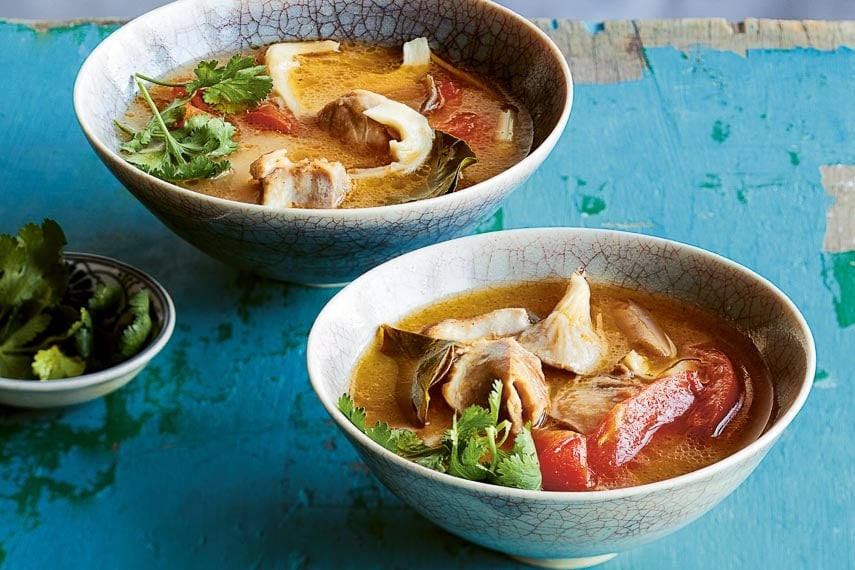
- Thai Inspired Chicken Coconut Broth
- Dairy-Free Coconut Whipped Cream
- Chocolate Coconut Granola
- Pina Colada
- Tropical Frosty
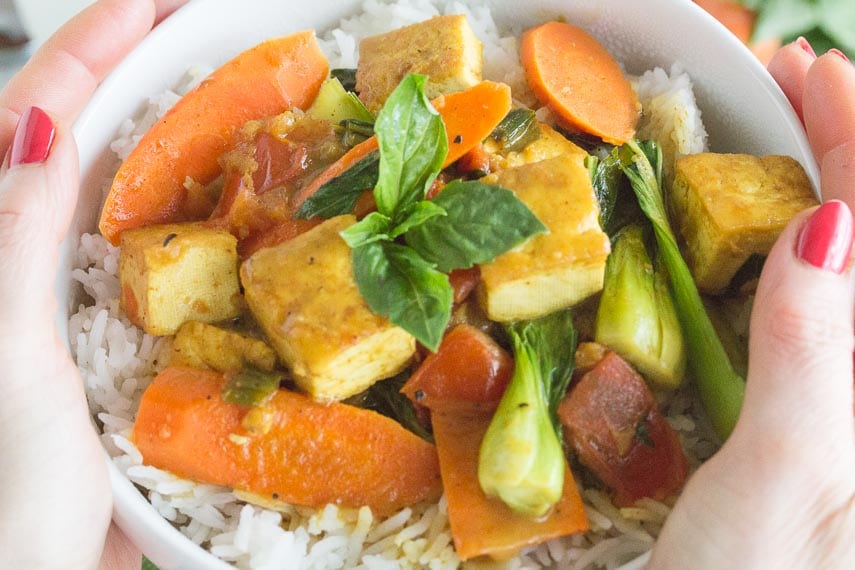
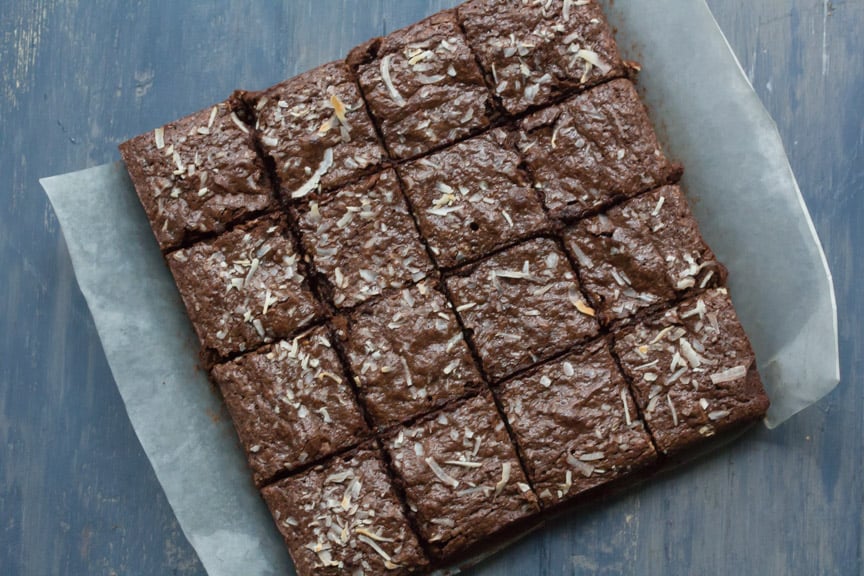

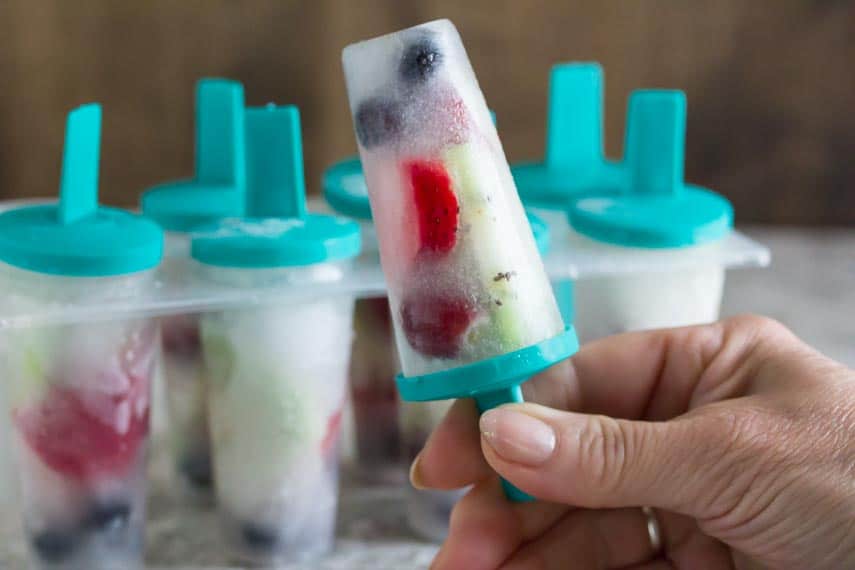



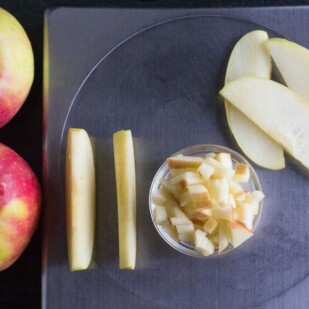







What about coconut butter?
Hi Melissa, fats are low FODMAP, hence coconut oil is considered low FODMAP. Coconut butter is made from dried coconut, processed until smooth, so it is essentially the same as very finely dried coconut (desiccated coconut is often used to make it at home). Coconut “butter” is not tested. It is high in fat but also contains the carbohydrates that contain the FODMAPs. Monash lists dried shredded coconut as low FODMAP in 30 g portions (they say about 1/2 cup but that will depend on the type of dried coconut). I would try the coconut butter in 1 tablespoon amounts and see how you do. Thank you for asking!
What about coconut aminos? How do you know coconut milk has inulin in it?
Hi Francis. Many people do very well with the coconut aminos and they are worth a try. Inulin will be listed in an ingredient label, so you just have to look.
When you refer to “coconut butter” are you also referring to coconut mana?
Thank you for this article! It was extremely helpful as I’m trying to navigate through a low-fodmap/AIP diet and coconut is used frequently in place of nuts and seeds.
Do you happen to have any information on casava and where can I find the most current fodmap list of foods?
Hi Amy, the coconut butter is the same as coconut manna. FYI we do not recommend any other elimination-style diet be undertaken along with the low FODMAP diet, as we follow Monash University guidelines. FYI the way to always be up-to-date is to have both the Monash and FODMAP Friendly apps. They are the two entities lab testing foods and products so they are ground zero and where others derive their info, which is often out-of-date or poorly represented. Both raw cassava (Monash) and cassava flour (FODMAP Friendly) are represented on the apps.
Can you use coconut as a reintroduction product for sorbitol? Or is that silly and just stick with the Monash suggestions of avocado, blackberries, etc. I’m not fond of apricots or peaches, so I would like to try something else. Plus, I really miss coconut in various forms.
Hi Alene, Great question! I’ve got a few things to say so bear with me is there in no particular order. First of all if you are not fond of apricots or peaches and will not ever be eating them fresh then there is absolutely no reason to use them as a test. It makes much more sense to test with foods that you do eat. That said, fresh coconut only becomes moderate for FODMAPs at 1 cup or 96 g and that is quite a lot so it would not be easy to use that as a test. I dare say most of us are not eating that much at a time let alone more. Dried coconut is not that much better as it only becomes moderate at 3/4 of a cup or 45 g. Canned coconut milk is moderate add a half a cup or 120 g and is high FODMAP at 3/4 of a cup and 180 g. If you wanted to use coconut maybe you could use canned coconut milk and make smoothies?
I’ve already used coconut milk in dishes and I was fine. I was thinking more about coconut flour and dried coconut when they are added to dishes as another flavor addition. I looked at the Monash amounts and thought that was too much also. I will stick to the Monash food suggestions. I’m reacting to the strangest things, things I always ate some months ago without problems. So this whole thing is so discouraging. I did buy Alana Scott’s cookbook, the Gut-friendly Cookbook. Maybe something in there will stimulate my appetite and fit my ibs needs. Thank you for answering my question. Hope you have a nice day.
Alene, remember that symptoms can come from food as well as non-food triggers. And, your GI tract is not static. You might do well, or not, with certain things now and later it will be different. The best advice I can give to you is to work with a RD to help make sure you are structured in such a way as to get the info you need; to make it as clear as possible.